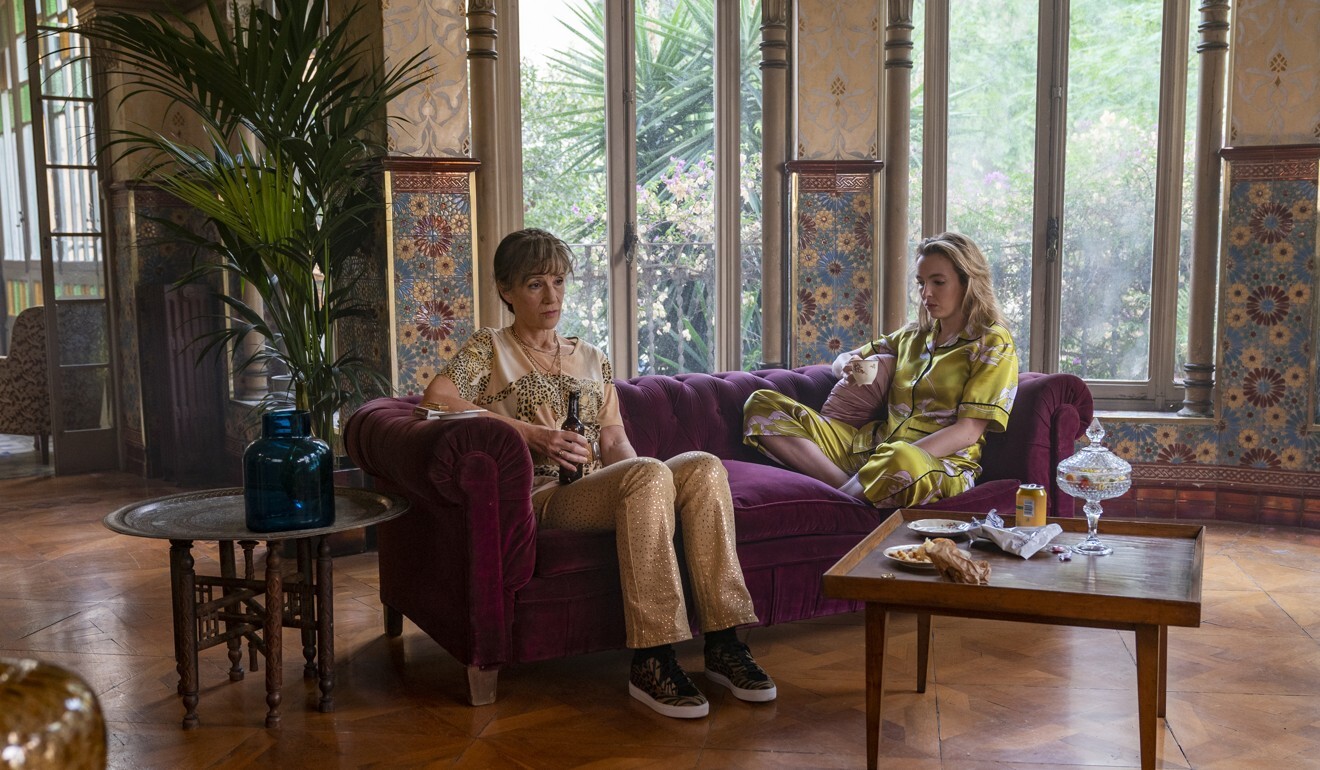
The music and soundtrack make Killing Eve unique, says music supervisor, as the quirky BBC America thriller series enters its third season
- Catherine Grieves talks about matching the soundtrack to the ‘strong, weird and flawed’ women in the show
- She uses more original music than commercial tracks to match the dialogue and underscore the comedic moments
In the third and latest season of Killing Eve, the spy thriller’s two female leads reunite in a show-stopping scene in which they kiss. What defines the electrifying moment is not only the performance of Sandra Oh, as special agent Eve, and Jodie Comer, the psychotic assassin Villanelle, but the track Strange Effect by Unloved that perfectly sums up the mood.
Music has always been at the core of the award-winning TV series – and its success.
According to Catherine Grieves, music supervisor of the award-winning BBC America production, Killing Eve is “bold” in its writing and cinematography; and with an “exciting cast with strong, weird, and flawed women leading this show, we really wanted the soundtrack to match all of those aspects”.
Music says a lot of things in Killing Eve, Grieves explains in an email. “A lot of times when we use songs, that often can feel like it’s Villanelle or Eve’s inner thoughts, almost. It also really drives the drama,” she says.
The classically trained musician says the score helps to keep the individual tone and colour of the show “by bringing out some of the more comedic elements [but] without making fun of it, of the murders, [the music] brings a lightness and almost kind of tongue in cheek feel to it.”
Thrown in the mix is senior agent Carolyn Martens (Fiona Shaw), whose past and purpose in the whole shenanigans remain a total mystery.

The show’s second season picked up numerous awards last year, with Oh named best actress at the Golden Globe Awards, Comer took home a Primetime Emmy for outstanding lead actress, and composer David Holmes winning a Bafta (British Academy of Film and Television Arts) award for the soundtrack, which British music magazine NME described as “a knockout”.
Grieves, who also works as an agent for media composers at Faber Music in London, is a seasoned music supervisor in the film and television industry and worked on big projects such as the 2012 screen adaptation of Les Miserables and the BBC TV series Wolf Hall (2015). She recommended Holmes, who co-founded Unloved with Keefus Ciancia, to compose music for the show.
Other than songs by Unloved, other tracks played in the show include Brigitte Bardot’s Contact, Roxette’s Listen to Your Heart and Cigarettes After Sex’s K. But it is interesting that Killing Eve features more original vocal music than existing commercial tracks, says Grieves.
“It's very difficult to make that work, with so many vocals on a score because you have to have the space where the vocals and the words in the music aren't conflicting with the dialogue and kind of getting in the way.”

“So it is particularly unique that we have a show that allows us to have that room to use such bold songs throughout it.”
And she wants to use music to highlight that balance of love and obsession between Eve and Villanelle. “We think about that very carefully in terms of the music that we use. We rarely use songs that have very overtly kind of romantic or love scenes in them, they're more subtle on the whole,” says Grieves.
“And we like to push the idea of obsession rather than love. I think it keeps that interesting.” As the series enters its third season, Grieves says it’s important to maintain that “Killing Eve sound”.
“I think what keeps it interesting for us is because we go to different countries each series we’ve always got that challenge to find that really brilliant Russian track or Spanish or Dutch track. We have the challenge to find something new [for] each series.”

Grieves is currently working on a number of TV shows including an adaptation of the David Nicholls novel Us for the BBC.
How is working on Killing Eve similar or different to other productions she has worked on?
“I think because usually when I’m working on something, you’ll have a composer … who’s writing the score on that side independently and I’d work on songs, so it’s very kind of clear cut,” she explains. “There’ll be a couple of spots in an episode where we want commercial music and I’d be very much in control of that.
“[With Killing Eve], we look at the music as a whole and David and I collaborate very closely, it means that there’s a cohesive sound to everything in that soundtrack. That makes it a lot of fun when you’re working in a team. So … yeah, it’s great.”

